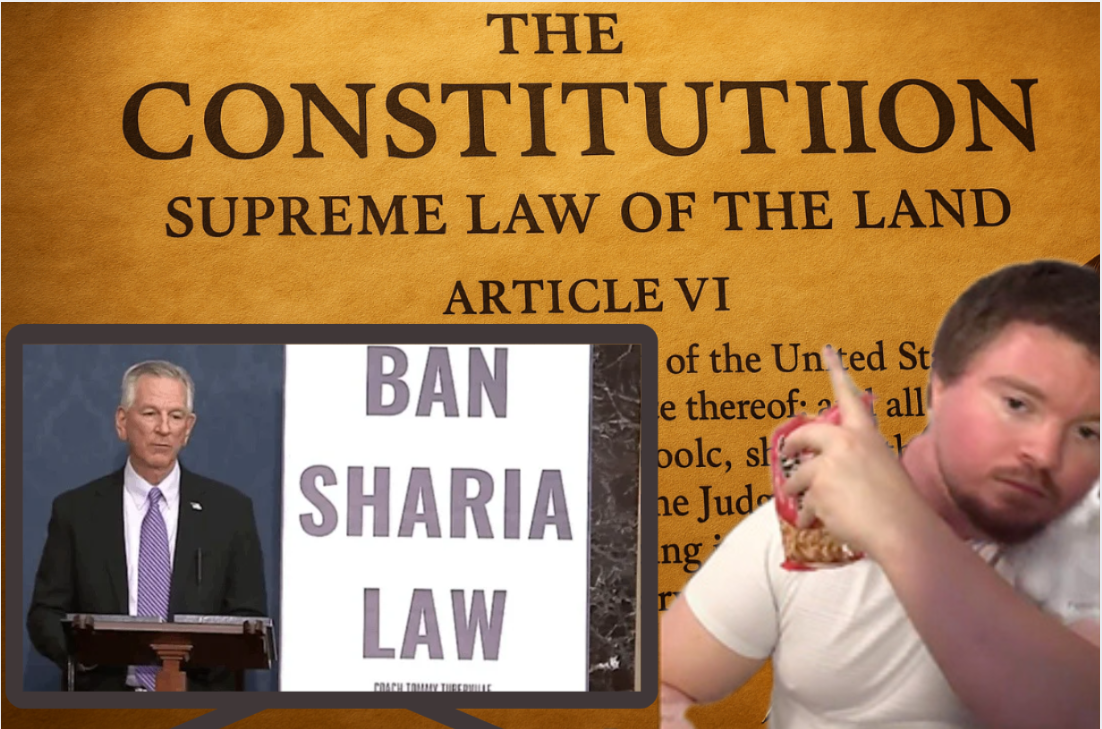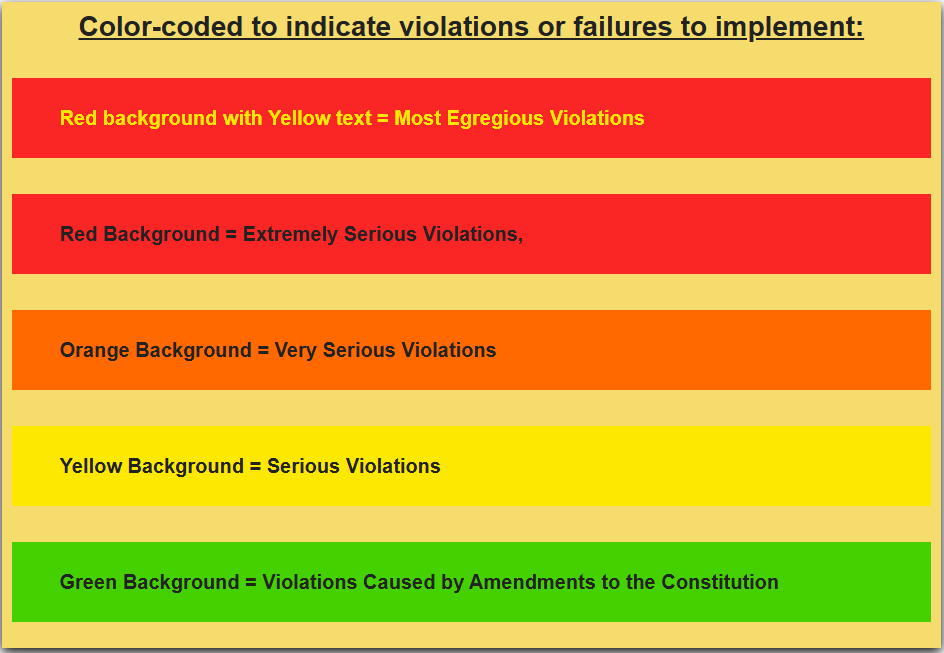By SGerhart
Politicians playing to fear sometimes prefer pageantry to governance. Right now, that pageantry takes the shape of bills and press conferences promising to “ban Sharia law” in America. It’s a dramatic sound bite—and nothing more.
The United States already has a robust constitutional firewall. The Supremacy Clause, the First Amendment, and centuries of judicial precedent already prohibit government enforcement of religious edicts that conflict with civil rights or due process.
If a religious code demanded corporal punishment, gender discrimination, or stripped someone of due process, a judge would—and must—refuse enforcement. That’s not politics. That’s constitutional obligation.
Why “Ban Sharia” Bills Are Unnecessary and Unconstitutional
“Ban Sharia” proposals are not about legal protection—they’re about political theatre.
They:
- Duplicate existing law. Courts already reject any enforcement of religious or foreign law contrary to constitutional rights.
- Violate neutrality. Targeting one faith (Islam) breaches the First Amendment’s Establishment and Free Exercise Clauses.
- Invite costly litigation. Oklahoma’s 2010 “Save Our State” amendment was struck down as unconstitutional discrimination.
- Waste legislative energy. Every redundant bill diverts time and taxpayer resources from genuine governance.
The Constitution already bans theocracy and guarantees equal protection to every citizen, regardless of faith.
Constitutional Provisions That Already Bar Sharia (or Any Religious Law)
Each of these provisions independently blocks the institutionalization of any religious code as civil law:
- Preamble: Establishes the Constitution as the sole framework for justice and government authority.
- Article VI – Supremacy Clause: The Constitution and federal law are “the supreme Law of the Land.” No other law—religious or foreign—can override it.
- Article VI – Oath Clause: Every federal and state officer “shall be bound by Oath or Affirmation, to support this Constitution.”
- First Amendment: Prohibits government from establishing or suppressing religion. The state cannot adopt, enforce, or target Sharia or any other faith code.
- Fifth Amendment: Guarantees due process—religious punishments like corporal penalties or unequal testimony violate it.
- Fourteenth Amendment, Section 1: Extends due process and equal protection to all citizens, forbidding states from enacting any law that abridges those rights.
- Fourteenth Amendment, Section 3: Bars officials who violate their oath or support contrary governance from holding office.
- Article IV, Section 4: Guarantees each state a republican (non-theocratic) form of government.
These are not optional guidelines—they are binding law. To propose new “bans” on Sharia implies ignorance or dereliction of that sworn duty.
The Oath Is the Law
Every elected and appointed official in America swears the same oath: to support and defend the Constitution.
When lawmakers introduce redundant or discriminatory legislation, they waste their authority and risk violating that oath.
Constitutional compliance isn’t optional. It’s the legal duty of every public servant.
🗳️ Citizen Tools for Accountability
The First Amendment provides the remedy for official negligence: petition for redress of grievances.
Citizens can—and should—invoke that power.
Action Steps:
- Petition: File First Amendment petitions demanding legislators end redundant, unconstitutional bills.
- Educate: Share this article and the constitutional citations—most officials need a refresher.
- Organize: Form or join Constitutional Counties that publicly track votes and compliance with oath obligations.
- Engage: Attend hearings, request written oath reaffirmations, and document legislative behavior.
These peaceful, constitutional tools empower citizens to restore lawful governance without spectacle or division.
Politics should solve problems, not manufacture them.
The Constitution already prohibits theocracy, foreign law, and unequal justice.
Our job—citizen and public servant alike—is not to rewrite it, but to enforce it.
Let’s redirect our time, energy, and public resources toward ensuring constitutional compliance—not performing symbolic legislative theater.

Documents and resources faithfully produced and graciously shared by:
The focus of this site is to serve as an organization point for Constitutional Warriors and concerned citizens to coalesce and establish ground efforts within their area and State to move their State legislators to audit the Constitution and call upon their fellow States to convene a convention for Republic Review



